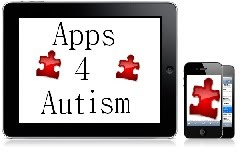How People with Autism Experience the World
When people have certain conditions, they do not always have the same perception of the world as other individuals do. While certain aspects of life are the same, others vary in immense ways. Individuals with autism make up one group of people who experience the world in different yet incredible ways.
Attending Therapy
People who have autism have therapy as a major part of their lives. Depending upon the severity of the condition, they may receive services only as a child or throughout the entire duration of their lives. According to Kids Health, these individuals may undergo speech therapy, occupational therapy, physical therapy, behavior therapy, music therapy and social skills training. Eventually, therapy just becomes a regular part of life.
Social Situations
Some people are already familiar with the ways in which those who have autism differ socially from other individuals. They may have difficulty with social cues, meaning that they sometimes can’t recognize when someone is using sarcasm or when a person is uncomfortable with a situation. For example, they may not understand why someone would raise an eyebrow in question, prompting confusion or questioning.
Communication
Communication is a place where people with autism can experience the world in a completely different way than individuals who don’t have autism. While you and I are used to simply speaking to one another when we have something to do, some people with autism are unable to talk or feel uncomfortable talking in social settings. They can feel scared to express their emotions through words. Therefore, instead, they opt to write out what they want to say. They may also use non-verbal cues to express their thoughts. Of course, these traits can greatly vary from person to person, depending on his or her personality.
Acting Out
Kids Health notes that individuals with autism may act aggressively with frustration when they are placed in a situation that’s out of the ordinary for them. Little children with autism, for example, may have tantrums if their parents happen to deviate from their usual routine one night. Individuals who have autism do not see this change as just a slightly different pattern from the usual—they may see it as an attack on their regular routine.
External Stimuli
Various situations and factors in the outside world can also be very frightening for autistic individuals. For example, sudden loud noises can cause extreme fear and anxiety. Sure, many of us are afraid of thunder, but people with autism can be completely set off from the loud noise and may become inconsolable if someone touches them to calm them.
Of course, no two people experience the world in exactly the same way, regardless of whether or not they have autism. Autism certainly affects the ways in which individuals view society around them, but it’s important to know that there’s no right or wrong way to interpret the universe.
Brittney Hodgkins is a clinical intern who loves reading and jogging, and is a contributing writer forhealthinsurancequotes.org





.jpeg)

.png)












































 ShareThis
ShareThis